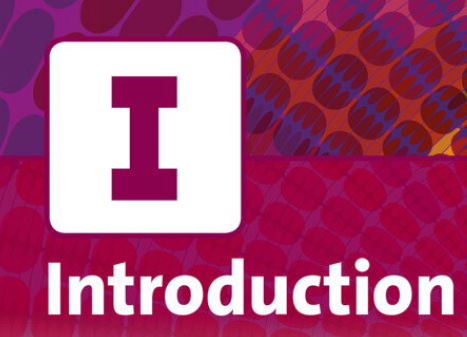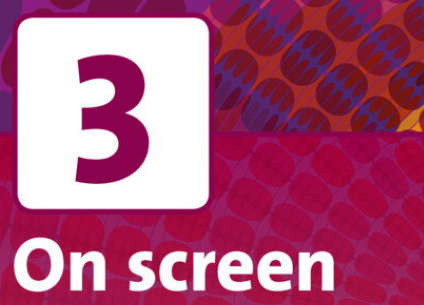Схема розділу
-

Our material this week includes:
- Vocabulary I (Likes & Dislikes; Describing People);
By the end of this lesson, the students will be able to:
- name university and school subjects and hobbies;
- discuss subjects and hobbies;
- have a conversation about likes and dislikes;
- describe people's appearance and clothes;
- describe the place, where they study.
- Grammar Revision (Contrast Present Simple VS Present Continuous;
Articles; Construction there is/there are)
By the end of this lesson, the students will be able to:
- differentiate Present Simple and Present Continuous tenses;
- use Present Simple and Present Continuous appropriately;
- talk about everyday activities and facts;
- describe things that are happening right now and make future arrangements;
- know the difference between definite and indefinite articles A/THE;
- use English articles appropriatey;
-

Completing the current unit, we are going to achieve such Bloom Taxonomy Learning Objectives:
- Vocabulary (Adjectives to describe feelings)
By the end of this lesson, the student will be able to:
- name and define feelings in English;
- use present continuous and modifying adverbs correctly.
- Grammar (Past Simple)
By the end of this lesson, the student will be able to:
- learn Past Simple formation;
- talk about past experience;
- use past simple affirmative and negative to describe past events;
- ask questions about past experience/events;
- use should/shouldn’t to give advice;
- describe problems and offer advice.
- Listening (Listening for gist)
By the end of this lesson, the student will be able to:
describe the feelings in different situations;- understand people talking about problems;
- discuss people’s stories, give their opinion on them;
- Word Skills (Adjective endings -ed/-ing)
By the end of this lesson, the student will be able to:
learn the difference between -ed and -ing adjective affixes;- use different types of adjectives correctly;
- learn the ways to react to other people’s stories with “How+adjective”;
- react to different types of information appropriately.
- Reading ('Painless')
By the end of this lesson, the student will be able to:
- read and understand a text about medical conditions;
- learn the vocabulary to describe injuries;
- describe injuries and accidents.
- Speaking (Narrating events)
By the end of this lesson, the student will be able to:
- learn and follow a simple structure for narrating events;
- describe past events using a simple structure and appropriate grammar.
- Writing (A description of the Event)
By the end of this lesson, the student will be able to:
- learn phrasal verbs to describe various actions;
- differentiate formal and informal register of writing;
- use informal and formal language in an appropriate context;
- create a post/short article.
- Unit 1. Test
-

Completing the current unit, we are going to achieve such Bloom Taxonomy Learning Objectives:
- Vocabulary (Landscapes)
By the end of this lesson, the student will be able to:
- name landscapes and features of nature;
- understand descriptions of holiday adverts;
- describe a landscape;
- discuss different types of activities;
- name adjectives to describe sport activities and sportspeople;
- describe a sport and people who practice it;
- learn phrases for emails and phrases for making suggestions.
- Grammar (Past Continuous; Past Simple VS Past Continuous)
By the end of this lesson, the student will be able to:
- learn past Continuous formation;
- differentiate Past Simple and Past Continuous tenses;
- use Past Continuous to describe a scene of a story and Past Simple to describe sequence of events;
- understand a text about the past;
- describe past events using a variety of tenses;
- Listening (Listening for key words and antonyms)
By the end of this lesson, the student will be able to:
- identify synonyms in a listening text;
- understand people talking about activities and sports;
- predict the use of synonyms and synonymous grammar structures in a listening text;
- discuss extreme sports and activities, people who practice them and locations where it takes place;
- Word Skills (Word-building: Related verbs and nouns)
By the end of this lesson, the student will be able to:
- learn the suffixes to form nouns;
- identify and differentiate parts of speech using suffixes;
- understand and use dictionary entries to find related words;
- discuss teen exploration.
- Reading ('Lost at Sea')
By the end of this lesson, the student will be able to:
- read and understand a survival story;
- learn and understand extreme adjectives;
- use extreme adjectives appropriately
- Speaking (Photo Description)
By the end of this lesson, the student will be able to:
- learn and follow a structure to describe and speculate about a photo;
- describe background, objects and people on a photo and speculate about people’s feelings using vocabulary of the unit;
- conduct an interview.
- Writing (An Invitation)
By the end of this lesson, the student will be able to:
- learn phrases to sequence events;
- use vocabulary to write a description of an activity;
- learn and use abbreviations and short forms for informal emails;
- create an invitation and a reply to it using unit vocabulary and grammar.
- Unit 2: Test
-

Completing the current unit, we are going to achieve such Bloom Taxonomy Learning Objectives:
- Vocabulary 3 (Films and Programmes)
By the end of this lesson, the student will be able to:
- name types of films and TV programmes, an learn adjectives to describe them;
- learn aspects of films in English;
- understand excerpt from films and dialogue about them;
- use unit vocabulary to describe films and take part in conversation about films.
- Grammar (Quantity; Modals)
By the end of this lesson, the student will be able to:
- learn the rules of using quantifiers;
- differentiate quantifiers;
- use various quantifiers in conversations and written texts;
- learn modal verbs of obligation, necessity, prohibition;
- understand different types of instructions;
- create and describe rules.
- Listening (Using the task to predict what you hear)
By the end of this lesson, the student will be able to:
- identify clues about a listening text from instruction an question;
- predict the content of a listening text;
- use instructions and questions to guess the content of a listening text;
- create and perform an advert.
- Word Skills (Negative adjective prefixes)
By the end of this lesson, the student will be able to:
· learn the negative adjective prefixes to form nouns;
- use negative prefixes to form antonyms;
- understand and use dictionary entries to find synonyms and antonyms;
- discuss illegal activities using negative adjectives.
- Reading ('Video Games and Health')
By the end of this lesson, the student will be able to:
- read and understand an article about the health effects of videogames;
- learn and use collocations, related to technology and its effect on youth;
- identify the question types for a reading text;
- give an opinion on the health effects of video games.
- Speaking (Reaching an agreement)
By the end of this lesson, the student will be able to:
- use time effectively to think in English before the speaking activity;
- describe films by their genre and preference;
- discuss the options and reach a decision about activities to perform, using phrases for expressing likes and dislikes;
- express a preference and reach an agreement.
- Writing (An informal letter)
By the end of this lesson, the student will be able to:
- analyse an informal letter;
- write an informal letter and a reply to it;
- describe the different aspects of a film and give and additional information using informal language.
- Unit 3. Test
-

Our material this week includes:
- Vocabulary (Adjectives to describe feelings)
- Grammar (Past Simple)
- Listening (Listening for gist)
- Word Skills (Adjective endings -ed/-ing)
- Reading ('Painless')
- Speaking (Narrating events)
- Writing (A description of the Event)
- Unit Test
-
Our material this week includes:
- Vocabulary (Adjectives to describe feelings)
- Grammar (Past Simple)
- Listening (Listening for gist)
- Word Skills (Adjective endings -ed/-ing)
- Reading ('Painless')
- Speaking (Narrating events)
- Writing (A description of the Event)
- Unit Test
- Cumulative Test (Units 1-5) -
Our material this week includes:
- Vocabulary (Adjectives to describe feelings)
- Grammar (Past Simple)
- Listening (Listening for gist)
- Word Skills (Adjective endings -ed/-ing)
- Reading ('Painless')
- Speaking (Narrating events)
- Writing (A description of the Event)
- Unit Test
-
Our material this week includes:
- Vocabulary (Adjectives to describe feelings)
- Grammar (Past Simple)
- Listening (Listening for gist)
- Word Skills (Adjective endings -ed/-ing)
- Reading ('Painless')
- Speaking (Narrating events)
- Writing (A description of the Event)
- Unit Test
-
Our material this week includes:
- Vocabulary (Adjectives to describe feelings)
- Grammar (Past Simple)
- Listening (Listening for gist)
- Word Skills (Adjective endings -ed/-ing)
- Reading ('Painless')
- Speaking (Narrating events)
- Writing (A description of the Event)
- Unit Test
-
Our material this week includes:
- Vocabulary (Adjectives to describe feelings)
- Grammar (Past Simple)
- Listening (Listening for gist)
- Word Skills (Adjective endings -ed/-ing)
- Reading ('Painless')
- Speaking (Narrating events)
- Writing (A description of the Event)
- Unit Test
- Final test (Units 1-9)
